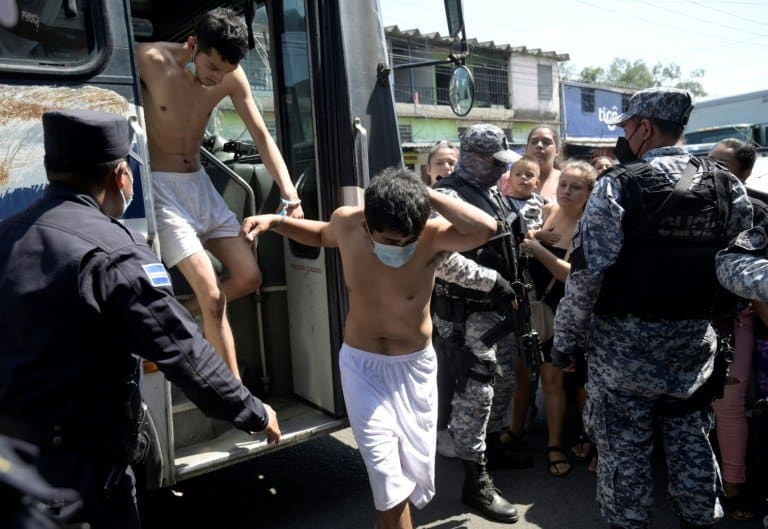UN rights body ‘concerned’ over El Salvador gang measures

The office of the UN High Commissioner for Human Rights on Tuesday expressed concern about El Salvador’s approach to combating gang violence, pointing to “alleged cruel, inhuman or degrading treatment.”
El Salvador’s government declared a state of emergency 10 days ago following a bloody weekend of gang violence that included at least 87 reported killings.
On Monday, President Nayib Bukele said 6,000 suspected gang members had been arrested since the state of emergency — which allowed authorities to detain suspects without a warrant — was declared.
“In addition to the state of emergency, we are deeply concerned about certain amendments to criminal law and criminal procedure.”
Among those were an increase in maximum prison sentences for children and a law that allows teenagers to be tried as adults for the most serious offenses, and to serve their sentences in adult prisons rather than juvenile detention facilities.
Throssell also expressed concern about reported “unnecessary and excessive use of force” by the police and military in their arrest operations.
Last week, Bukele warned that gang members face two options: “prison or death.”
Congress also increased the maximum prison sentence for gang membership from nine to 45 years.
On Monday, Bukele even vowed to deny food in prison to gang members who take “revenge” on the population over his policies.
“We recognise the challenges posed by gang violence in El Salvador and the State’s duty to ensure security and justice. However, it is imperative that this is done in compliance with international human rights law,” said Throssell.
“We remind El Salvador that the right to life, the right not to be subjected to torture, principles of fair trial and the presumption of innocence, as well as the procedural safeguards that protect these rights, apply at all times, even during states of emergency. This is especially so in the case of children.”
Meanwhile, Guatemala on Tuesday said it had detained the “Salvadoran gangster known as ‘El Flash.'”
Guatemala described Alfaro, 40, also known as Wilman Wilfredo Munoz Acosta, as one of the leaders of the Barrio 18 gang, one of the two most notorious criminal organizations in Central America.
El Salvador registered 1,140 murders in 2021 — an average of 18 deaths per 100,000 inhabitants — a decline from the 1,341 registered the previous year and the lowest figure since the country’s civil war ended in 1992, according to official data.





